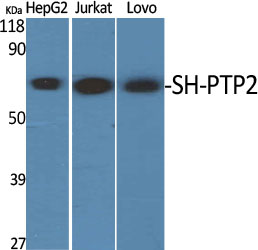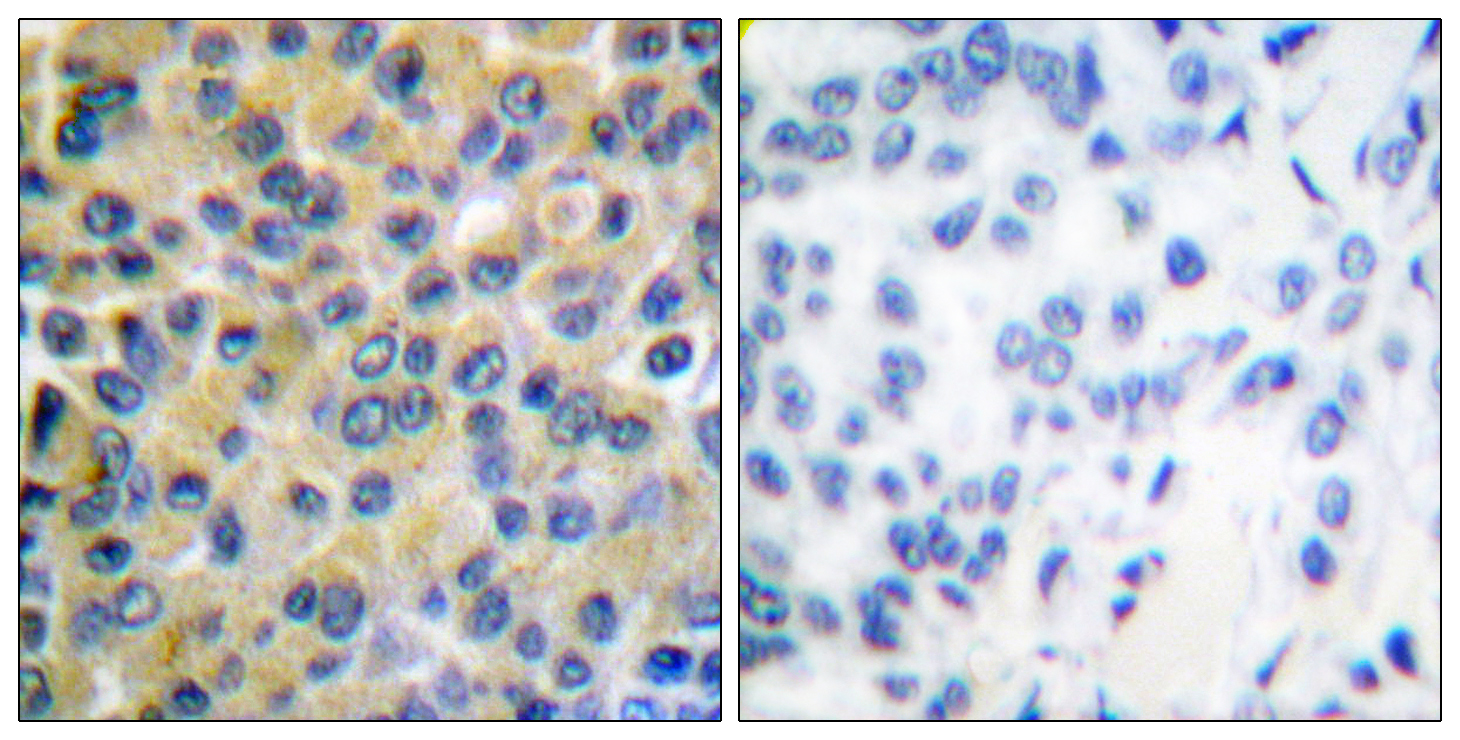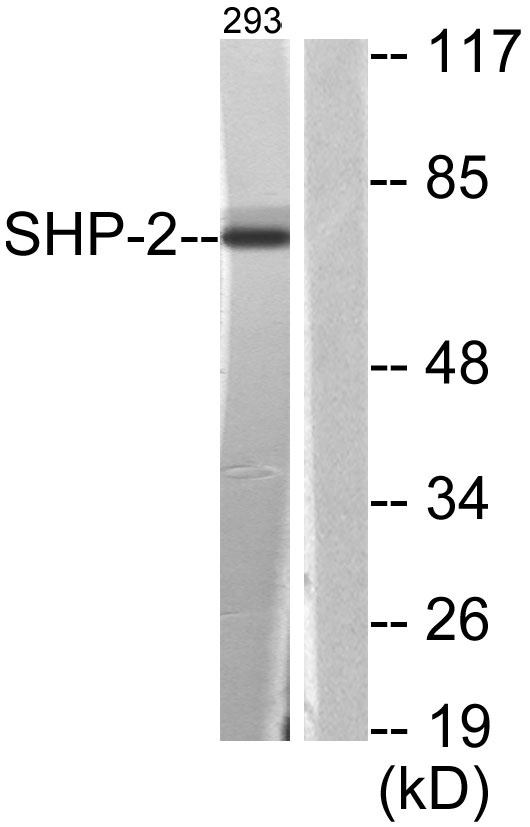SH-PTP2 Polyclonal Antibody
- 货号:YT4293
- 应用:WB;IHC;IF;ELISA
- 种属:Human;Mouse;Rat
- 简介:
- >>Ras signaling pathway;>>Phospholipase D signaling pathway;>>Axon guidance;>>C-type lectin receptor signaling pathway;>>JAK-STAT signaling pathway;>>Natural killer cell mediated cytotoxicity;>>Leukocyte transendothelial migration;>>Neurotrophin signaling pathway;>>Adipocytokine signaling pathway;>>Insulin resistance;>>Epithelial cell signaling in Helicobacter pylori infection;>>Pathogenic Escherichia coli infection;>>Herpes simplex virus 1 infection;>>Proteoglycans in cancer;>>Chemical carcinogenesis - reactive oxygen species;>>Renal cell carcinoma;>>Chronic myeloid leukemia;>>PD-L1 expression and PD-1 checkpoint pathway in cancer
- 蛋白名称:
- Tyrosine-protein phosphatase non-receptor type 11
- 免疫原:
- The antiserum was produced against synthesized peptide derived from human SHP-2. AA range:546-595
- 特异性:
- SH-PTP2 Polyclonal Antibody detects endogenous levels of SH-PTP2 protein.
- 组成:
- Liquid in PBS containing 50% glycerol, 0.5% BSA and 0.02% sodium azide.
- 来源:
- Polyclonal, Rabbit,IgG
- 稀释:
- WB 1:500 - 1:2000. IHC 1:100 - 1:300. ELISA: 1:20000.. IF 1:50-200
- 纯化工艺:
- The antibody was affinity-purified from rabbit antiserum by affinity-chromatography using epitope-specific immunogen.
- 储存:
- -15°C to -25°C/1 year(Do not lower than -25°C)
- 其他名称:
- PTPN11;PTP2C;SHPTP2;Tyrosine-protein phosphatase non-receptor type 11;Protein-tyrosine phosphatase 1D;PTP-1D;Protein-tyrosine phosphatase 2C;PTP-2C;SH-PTP2;SHP-2;Shp2;SH-PTP3
- 背景:
- The protein encoded by this gene is a member of the protein tyrosine phosphatase (PTP) family. PTPs are known to be signaling molecules that regulate a variety of cellular processes including cell growth, differentiation, mitotic cycle, and oncogenic transformation. This PTP contains two tandem Src homology-2 domains, which function as phospho-tyrosine binding domains and mediate the interaction of this PTP with its substrates. This PTP is widely expressed in most tissues and plays a regulatory role in various cell signaling events that are important for a diversity of cell functions, such as mitogenic activation, metabolic control, transcription regulation, and cell migration. Mutations in this gene are a cause of Noonan syndrome as well as acute myeloid leukemia. [provided by RefSeq, Aug 2016],
- 功能:
- catalytic activity:Protein tyrosine phosphate + H(2)O = protein tyrosine + phosphate.,disease:Defects in PTPN11 are a cause of juvenile myelomonocytic leukemia (JMML) [MIM:607785]. JMML is a pediatric myelodysplastic syndrome that constitutes approximately 30% of childhood cases of myelodysplastic syndrome (MDS) and 2% of leukemia. It is characterized by leukocytosis with tissue infiltration and in vitro hypersensitivity of myeloid progenitors to granulocyte-macrophage colony stimulating factor.,disease:Defects in PTPN11 are a cause of Noonan-like syndrome [MIM:163955]; also known as Noonan-like/multiple giant cell lesion syndrome. It is an autosomal dominant disorder characterized by Noonan features associates with giant cell lesions of bone and soft tissue.,disease:Defects in PTPN11 are the cause of LEOPARD syndrome [MIM:151100]. It is an autosomal dominant disorder allelic with Noonan
- 细胞定位:
- Cytoplasm . Nucleus .
- 组织表达:
- Widely expressed, with highest levels in heart, brain, and skeletal muscle.

- Western Blot analysis of various cells using SH-PTP2 Polyclonal Antibody diluted at 1:2000
.jpg)
- Western Blot analysis of 293 cells using SH-PTP2 Polyclonal Antibody diluted at 1:2000

- Immunohistochemistry analysis of paraffin-embedded human breast carcinoma tissue, using SHP-2 Antibody. The picture on the right is blocked with the synthesized peptide.

- Western blot analysis of lysates from 293 cells, using SHP-2 Antibody. The lane on the right is blocked with the synthesized peptide.

.jpg)



